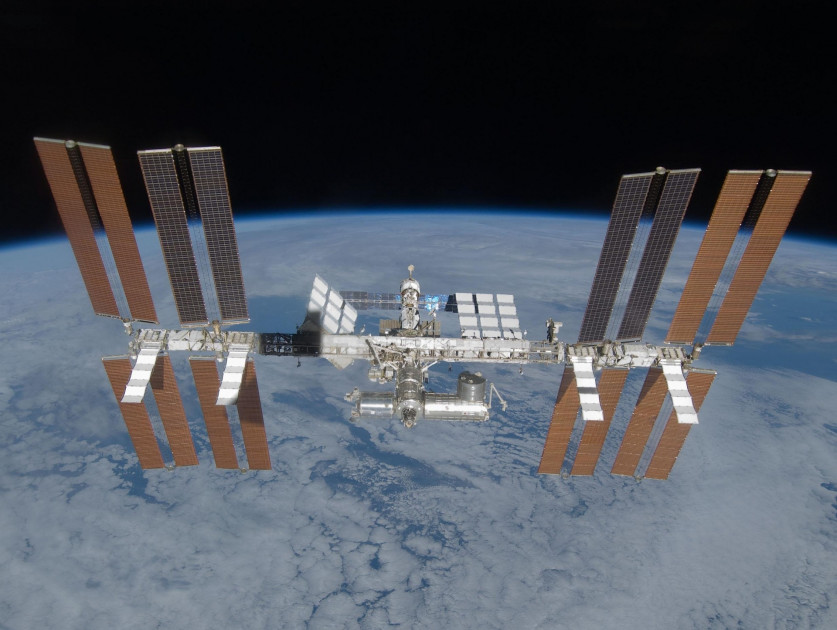
Socially responsible investment in the conquest of space
The space economy is growing. If it’s valued at $400 billion today, it should reach $2,700 billion by 2045, according to a study by PWC and Bank of America Merrill Lynch. A boom that is not without attracting investors, even responsible ones: “The space sector is still an area that has not been exploited to its full potential by responsible investors, especially in Europe, but is necessarily being developed,” notes Lawrence Mononier-Smith, Director sustainable development at the National Center for Space Studies (CNES).
Earth observation and satellite data are particularly useful for climate in particular. For example, out of the 50 indicators identified by the United Nations for monitoring climate change, 26 can only be provided through satellite imagery.
New investment frontiers
But what explains this growing interest? At a time of environmental necessity, some are convinced of the positive role the space sector can play in the search for sustainable solutions. This is particularly the case with La Financière de l’Échiquier (LFDE), which launched the Echiquier Space Fund in 2021. It is dedicated to space and its ecosystem, investing “across the entire value chain of the space ecosystem, as well as in companies developing related technologies.” says Rolando Grandi, Director of International Thematic Actions at LFDE.
These companies generate spatial data that “benefit all sectors, from agriculture to insurance, by allowing their activities to be predicted and optimized,” he adds, noting that “Earth observations and satellite data are particularly useful for climate, for example, among the 50 indicators identified by the United Nations To monitor climate change, 26 indicators can only be provided through satellite imagery.
This fund is accompanied by an ESG charter that is also dedicated to spatial issues. Created by the management company, it draws in particular on sectoral and normative exceptions, conflict management as well as ESG analysis to assess companies’ commitment and the means they use on these issues.
Our goal is to leverage our advanced technology to bridge environmental data gaps and provide the real-time, specific, and reliable environmental impact indicators that investors increasingly need.
Diversified company features
Among the stocks that make up its fund, LFDE chose the American company Planet. Founded in 2010 by three NASA scientists, it covers the entire Earth with a fleet of more than 200 nanosatellites. “constellation Satellites From Planet – which takes 3 million snapshots of the Earth a day – provides valuable information to its clients, whether the European Commission is responsible for protecting Biodiversity, the Amazon Conservation Society for mapping forest damage in the Amazon or even EOMAP, a company specializing in the protection of aquatic environments, based in Germany. This data and technology will also be particularly valuable for water management on a global scale.”
At the same time, other companies are also present on these issues. This is the case of the French company Quantcube Technology, which has developed an environmental intelligence solution that helps asset managers, asset owners and banks to integrate environmental risks into their management processes.investment. The innovation, called the QuantCube Environmental Intelligence Solution, “combines alternative data sets, including satellite data, and advanced technologies such as computer vision, to capture and quantify physical and transition At the enterprise and asset level,” says Thanh Long Huynh, co-founder and CEO of QuantCube Technology. Our goal is to leverage our advanced technology to fill environmental data gaps and provide…environmental impact The real-time, accuracy and reliability that investors increasingly need.”
Mostly an environmental commitment
Today, responsibly positioned aerospace companies are, by nature, moving toward the environmental sector, notes Laurence Monnoyer-Smith. “Business models are taking an environmental turn. Companies are now asking how to develop a service or product with the lowest possible carbon footprint. These are considerations that companies have not systematically taken into account. They were accounted for four or five years ago, and which they are no longer missing today.”
Space is initially a very masculine domain. However, we note, for example, that today European contracts require the fulfillment of a certain number of specifications, including the gender equality dimension.
Regulatory pressure is pushing companies to address these issues. Thus, a few weeks ago the French National Council for Space Studies signed an agreement Statement for the responsible space sector, which brings together the European Space Agency (ESA) and 21 other European space agencies. “This is a commitment by agencies and companies in the space sector aimed at ensuring that the development of their activities is compatible with environmental as well as social and governance obligations,” she explains. “A number of companies have signed this commitment, like Tales or Airbus in particular.”
The emergence of the social component
However, some themes related to the social dimension, such as gender equality, are also beginning to emerge. “Space is initially a very masculine domain. However, we note for example that today’s European contracts require the fulfillment of a certain number of specifications, including the gender equality dimension”, affirmed the Director of Sustainable Development. from the CNES, before qualifying. “There is real reflection around these issues, but it takes time, because it can be difficult to find female engineers.”

“Organizer. Social media geek. General communicator. Bacon scholar. Proud pop culture trailblazer.”
